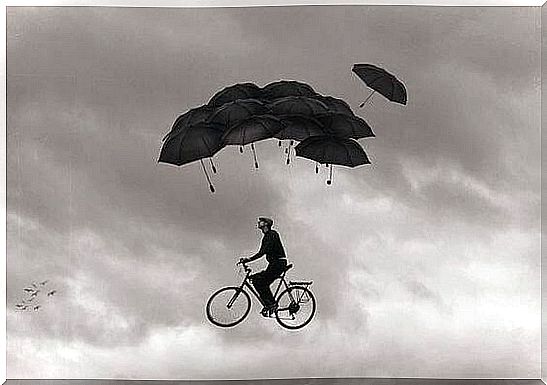The Dunning-Kruger Effect: Fictitious Inferiority And Superiority

The Dunning-Kruger effect is a distortion of thought that could be synthesized as follows: Dumb people think they are smarter than they really are, and intelligent people think they are dumber.
Or perhaps it would be more correct to say: ignorant people are sure they know a lot, while those who know a lot feel ignorant.
This curious effect was discovered by David Dunning and Justin Kruger, two North American researchers at Cornell University.
The first, a psychology professor , once learned something that left him perplexed; the robbery by McArthur Wheeler, a 44-year-old man, who robbed two banks without a mask and in broad daylight. It only took a few hours to stop it.
“The first step towards ignorance is to brag about knowing.”
-Baltasar Gracián-
What caught Dunning’s attention was the thief’s explanation of his world of operations ; in fact, he indicated that he had not used any mask, but instead applied lemon juice to his face.
He hoped that would make him invisible on surveillance cameras.
Why did he believe this nonsense? Friends of his “taught” him the trick, and he checked it out: he applied lemon juice to his face and then took a picture of himself, after which he could see that his face was missing. did not appear in the photo.
Obviously, the lemon juice in his eyes prevented him from seeing that he did not frame the photo on his face, but on the roof. “How can a person be so dumb?” Asked David Dunning.
The Dunning-Kruger Experience
After much thought about the thief’s behavior, Dunning asked himself a question that will serve as a hypothesis for his later research: Could it be that an incompetent is not aware of his own incompetence, precisely because he is incompetent?
Even if it doesn’t look like it, this question does make sense.

It was then that he proposed to his best pupil, the young Justin Kruger, to conduct formal research with him on this subject.
They then invited a group of volunteers to participate in their experiment, and asked each of the participants how effective they considered themselves in three areas: grammar, logical reasoning and humor.
Then they were given tests to assess their actual skills in each of these areas.
The results of the experiment confirmed what Dunning and Kruger already suspected; indeed, the subjects who had defined themselves as “very competent” in each domain obtained the worst results in the tests.
On the contrary, those who initially underestimated themselves obtained the best results.
Nowadays, it is very common to see people speaking with apparent authority on subjects which they have only superficially mastered.
At the same time, it is just as often that true experts are not so categorical in their assertions, since they are aware of the breadth of knowledge as well as the difficulty of asserting something with a total certainty.
Analysis of the Dunning-Kruger Effect
The organizers of this study not only noted that there was this cognitive bias, but they also realized that the most incompetent people tended to underestimate the most competent.
However, they were much more confident and had a much greater sense of self-sufficiency, despite their ignorance… or maybe it was precisely their ignorance.

After performing the experiment, the researchers came to the four conclusions that make up the Dunning-Kruger effect:
- People prove incapable of recognizing their own incompetence.
- They tend not to be able to recognize the skills of others.
- They are not able to realize the extent to which they are incompetent in a given area.
- If they are not trained to improve their skills, they will be able to recognize and accept their previous incompetence.
Once the deformation effect that there was in these people had been established, the question of why this phenomenon was taking place always had to be answered.
Dunning and Kruger stated that cognitive bias occurs because the skills needed to do something good are the same skills one needs to assess good results.
In other words, how do you realize that something is done wrong, if you don’t even know how to go about doing it right?

People with very good results also exhibited cognitive bias. In this case, the researchers established that what was happening was a misperception, better known as “false consensus”.
This error is that we tend to overestimate the degree of agreement with others.
Surely you have lived once the scene where two people are arguing, and finally, to resolve their argument, they decide to consult a third person whom both consider a priori to be neutral in order to help them.
Here, the false consensus would operate when both parties are convinced that the impartial observer will agree with them.
Something similar happens with people who have very good levels in an activity; for them it is so easy to realize it that they don’t understand that most people cannot do it as well as they do.









